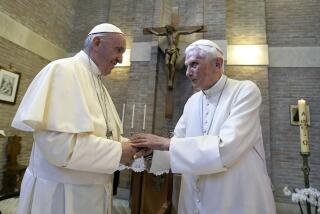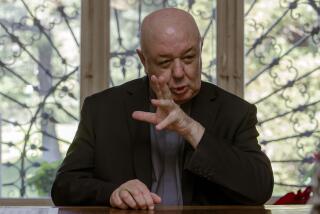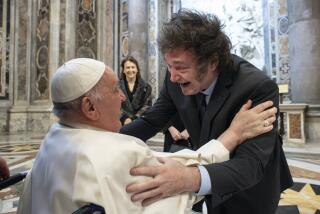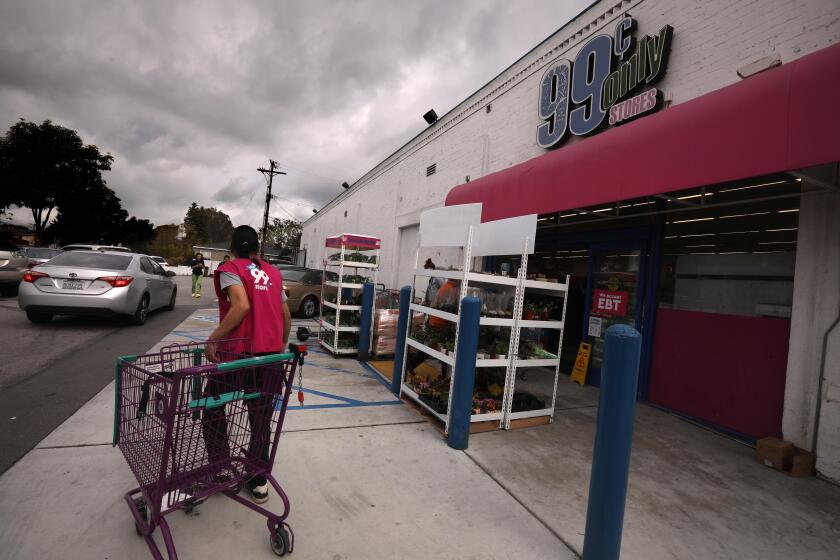The pope is Catholic, but our ambassador doesn’t have to be
John L. Allen Jr., the go-to guy in journalism for insights about the Vatican, has an interesting article in the National Catholic Reporter about the Obama administration’s vexed attempt to name a U.S. ambassador to the Vatican now that the post is vacant. Allen writes:
“Obama’s choice for a replacement is being closely watched in Rome, according to one senior Vatican diplomat, because it signals what kind of relationship Obama wants to have during his second term. Filling the slot tends to be a special headache for Democratic presidents because they have to find somebody who can pass muster both with their party and with the Vatican. The custom that it has to be a Catholic complicates things further, because it’s not just a candidate’s policy positions that might cause problems, but his or her internal standing in the church.”
The choice is complicated by the administration’s fraught relationship with the U.S. Catholic hierarchy, which has accused Obama of waging a war against religious freedom. Conservative Catholics are already carping about some potential candidates, including Nicholas Cafardi, the former dean of the Duquesne University Law School in Pittsburgh and a distinguished canon lawyer.
The Cardinal Newman Society, a right-wing group named after a famously liberal clergyman, noted disapprovingly on its website that Cafardi had “accused some bishops of vexing and oppressing people, electioneering and lobbying, and attempting to take away people’s constitutional rights.” (Cafardi had written an article criticizing an Illinois bishop who had compared the “extreme secularist agenda” of President Obama with the anti-Catholic programs of, among others, Hitler and Stalin. Cafardi called this “electioneering” and pointed out that churches can lose their tax-exempt status by taking sides in elections.)
There was a time when the idea of diplomatic relations between the United States and the Vatican was controversial. President Harry Truman backed down on his plan to dispatch an official envoy in the face of Protestant objections. John F. Kennedy, the first Catholic president, knew better than to propose sending an ambassador to the tiny principality. It was a Protestant president, Ronald Reagan, who finally acknowledged the reality that the Roman Catholic Church plays an influential role in international diplomacy. Even then, his decision to name an ambassador in 1984 appalled evangelicals like Jerry Falwell.
Since then, the idea of a U.S. ambassador to the Vatican has gained acceptance -- to the extent, as Allen notes, that the post is now a sinecure for a president’s Catholic supporters. The custom that the ambassador must be a Catholic imposes an unofficial religious test for office that would be unthinkable in other contexts. (No one would suggest that the ambassador to Israel must be Jewish.) More than that, the ambassador apparently has to be a “good” Catholic in the eyes of the U.S. bishops.
Allen offers an elegant way out of this morass: “breaking with the traditional bias for a Catholic drawn from the American scene, turning instead to a career diplomat regardless of religious affiliation.”
ALSO:
Photo gallery: Ted Rall cartoons
Letters: Guns, America and the NRA
Slideshow: The 10 trigger-happiest states in America
More to Read
A cure for the common opinion
Get thought-provoking perspectives with our weekly newsletter.
You may occasionally receive promotional content from the Los Angeles Times.







